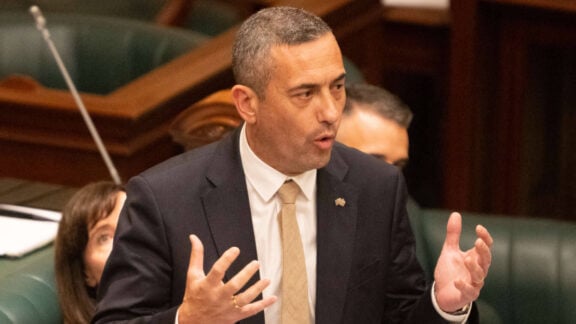New policy measuring the success and failures of multiculturalism in Victoria will see the government up their involvement with new migrants and community institutions.
The new policy, Victoria’s Advantage – Unity, Diversity, Opportunity, launched this week by Premier Denis Napthine and the Minster for Multicultural Affairs and Citizenship, Nicholas Kotsiras, will see qualitative steps taken to measure the success rate of multicultural programs.
The new initiative will track the progress of culturally and linguistically diverse (CALD) people and seek feedback on what needs to be done to improve services and community acceptance.
Things like how many CALD students finish high school, how many go onto university and how many international students are currently studying in Victoria will be tracked.
The number of international visitors in Victoria will be catalogued and the government will also see if skilled migrants have actually managed to find a job in their field.
In a first, the policy will also gather data on whether people think multiculturalism makes life better in their area and also track the prevalence of racism and discrimination currently in the community.
It will be the first time the state government has introduced policy to address specific complaints of discrimination and racial and religious vilification.
The Scanlon report last year found the proportion of people saying they had experienced some form of discrimination jumped from 12 per cent in 2012 to 19 per cent in 2013.
Premier Napthine said fighting racism and discrimination was not just for the government to tackle but something all Victorians should count themselves a part of.
“We must all remain vigilant in our efforts to combat racism and discrimination whenever it occurs,” Premier Napthine said on the new policy.
“It is not the role of the government alone, but rather it is the shared responsibility of all Victorians to ensure we are a stable and welcoming society.”
The policy will also interview new migrants to see if government and community services are adequate when dealing with CALD needs.
More information about the policy will be given closer to the November election, says Minister Kotsiras.
“I think it’s important, we can’t embrace new migrants and say welcome to everyone but not provide the resources and the assistance for them to feel a part of the community,” he tells Neos Kosmos.
“As we’ll be going closer to the election we’ll be announcing policies and programs with dollar terms on how to achieve this.”
The government is expecting to invest to make sure translators and interpreters are available for people with low English proficiency to access government information and service, while it also hopes to encourage young people with migrant backgrounds to excel in the workforce and at school.
The whole purpose of the policy, the government says, is to help better identify trends and emerging issues to better direct resources.
Neos Kosmos approached Opposition Leader and Shadow Minister of Multicultural Affairs and Citizenship Daniel Andrews for comment but he did not reply before deadline.
Also launched this week by Minister Kotsiras and the Education Minister Martin Dixon is a joint program to back civics, citizenship and multicultural education.
They hope to improve access to bilingual resources, provide cultural diversity training to educators, guide schools and early learning services in developing inclusive, respectful practices, and give young people more opportunities to be involved in civic projects.








